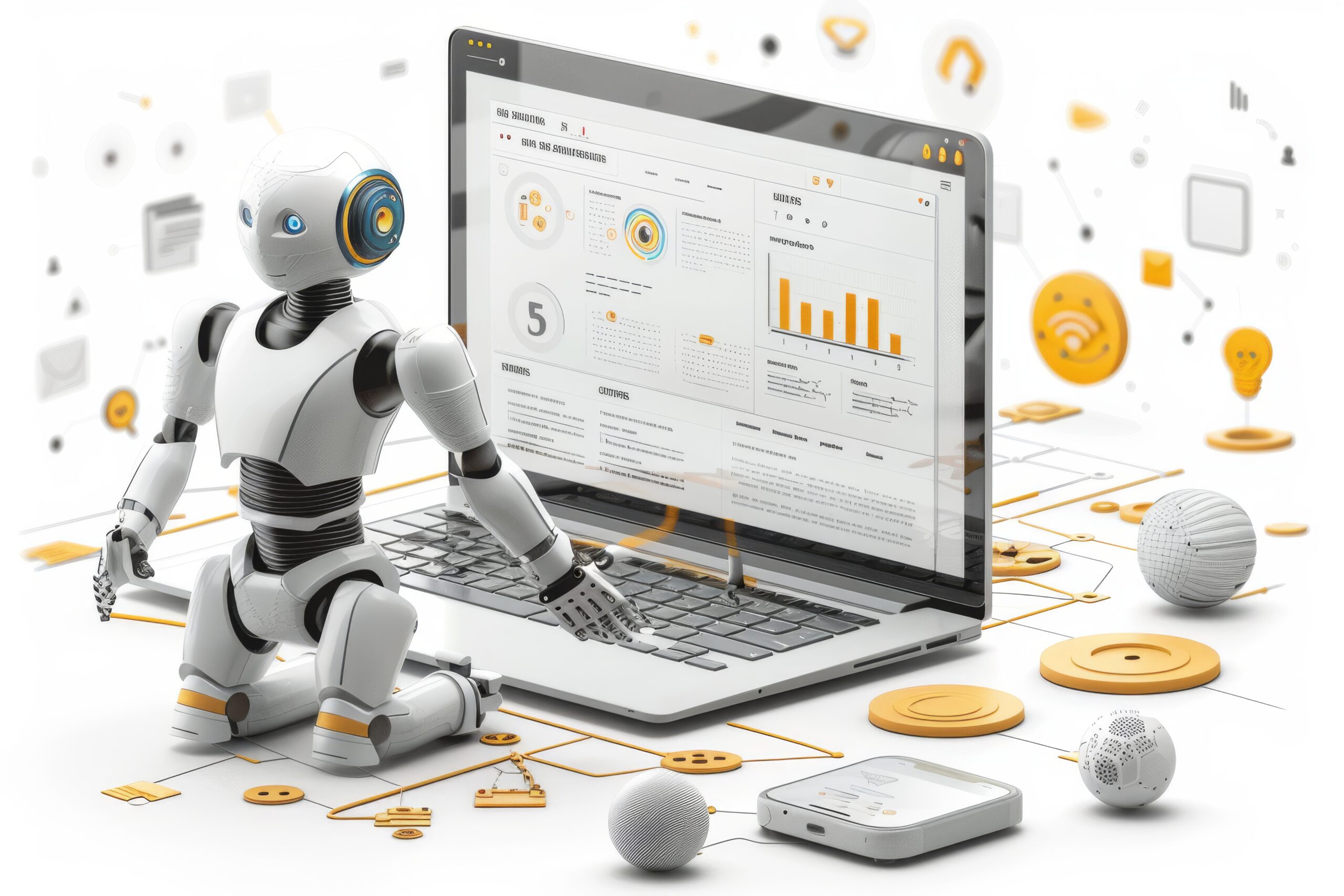Introduction to AI Email Marketing
In the ever-evolving landscape of digital marketing, businesses are constantly seeking innovative ways to create more impactful email campaigns while saving time and resources. Enter generative AI – a game-changing technology that is transforming the way marketers approach email marketing.
Generative AI is a type of artificial intelligence that utilizes data to create new content, including text, images, audio, and video. By leveraging the power of generative AI, marketers can streamline their email marketing efforts, creating personalized and engaging content at scale.
We strongly recommend that you check out our guide on how to take advantage of AI in today’s passive income economy.
Table of Contents
The Difference Between Predictive AI and Generative AI
Before we delve deeper into how AI email marketing works, it’s essential to understand the difference between predictive AI and generative AI. Predictive AI is used to forecast likely outcomes, such as predicting what a customer is likely to purchase next based on their previous behavior.
On the other hand, generative AI focuses on creating content. This powerful combination of predictive and generative AI can revolutionize your email marketing strategy, enabling you to deliver highly personalized and effective campaigns.
The Benefits of AI Email Marketing
Implementing generative AI in your email marketing strategy offers numerous benefits that can significantly improve your overall marketing performance. Here are some of the key advantages:
- Time-saving: Generative AI can create content at an astonishing speed, allowing you to develop email series, subject lines, body copy, and images in a fraction of the time it would take manually.
- Personalization at scale: AI email marketing enables you to deliver one-on-one personalized messages to your audience, customizing a large volume of emails using customer data. This level of personalization helps foster stronger connections with your subscribers.
- Optimized email performance: By leveraging generative AI for tasks such as A/B testing subject lines, you can quickly optimize your email campaigns, leading to higher open rates, click-through rates, and conversion rates.
- Cost reduction and improved ROI: AI email marketing helps reduce costs and improve return on investment by providing high-quality, personalized customer experiences efficiently.
The Importance of Human Oversight in AI Email Marketing
While generative AI can create content quickly and accurately, it’s crucial to maintain a “human in the loop” approach. This means that marketers should always review, edit, and approve the content generated by AI to ensure it aligns with their brand’s voice, tone, and messaging.
Human oversight guarantees that the content remains accurate, thoughtful, and impactful, while still benefiting from the speed and efficiency of AI email marketing.
Integrating AI Email Marketing with Salesforce Einstein
Salesforce Einstein is a powerful AI platform that combines both predictive and generative AI capabilities. As the first trusted AI for CRM, Einstein seamlessly integrates with Salesforce’s Marketing Cloud, enabling marketers to create exceptional customer experiences using their data and brand guidelines.
Creating an Email Campaign with Salesforce Einstein
To illustrate the power of AI email marketing, let’s walk through the process of creating an email campaign using Salesforce Einstein and Marketing Cloud. In this example, we’ll create a fall promotion email for a fictitious outdoor gear company called Northern Trail Outfitters.
Step 1: Choosing a Template and Drafting Subject Lines
Begin by selecting a prebuilt template or creating a tailored customer email from scratch within the Content Builder. Once you have your template, use Einstein to draft potential email subject lines. Simply provide a prompt that includes your target audience, key message, and desired personality.
Einstein will generate multiple subject line options based on your input. You can provide feedback using the thumbs up and thumbs down icons to help Einstein learn your preferences for future campaigns.
Step 2: Crafting the Email Body Copy
Next, move on to the body copy in the main content block of the email. Follow the same process as with the subject lines, inputting your key message and desired personality into the prompt. Einstein will provide several options for you to choose from.
Remember, you can always manually edit the generated content to ensure it aligns perfectly with your brand’s voice and messaging.
Step 3: Adding Engaging Images
No email is complete without compelling visuals. With Einstein’s Image Generation tool, you can easily create images that showcase your products and highlight them in the best possible way. Simply provide a description of the desired image, and Einstein will generate options for you to choose from.
Maximizing the Potential of AI Email Marketing with Salesforce Einstein
The example above barely scratches the surface of what you can achieve with AI email marketing using Salesforce Einstein and Marketing Cloud. These powerful tools offer a wide range of features for managing email lists, subscribers, analytics, personalization, and more.
By leveraging the capabilities of AI email marketing, you can create highly targeted and effective campaigns that resonate with your audience, ultimately driving better results for your business.
Conclusion
Generative AI is revolutionizing the way businesses approach email marketing, enabling marketers to create personalized, engaging content at scale while saving time and resources. By combining the power of AI email marketing with Salesforce Einstein and Marketing Cloud, you can take your email campaigns to new heights, delivering exceptional customer experiences that drive results.
Embracing AI email marketing is no longer a choice but a necessity for businesses looking to stay competitive in today’s digital landscape. By leveraging the power of generative AI and maintaining a human-in-the-loop approach, you can create email campaigns that not only captivate your audience but also contribute to your bottom line.
FAQs:
How does AI help with email marketing?
AI has become an invaluable tool in email marketing, enabling marketers to create personalized, engaging content at scale. Some of the key ways AI assists in email marketing include:
- Generating subject lines and body copy: AI can quickly create multiple variations of subject lines and email content based on provided prompts, saving time and effort.
- Personalizing emails: By leveraging customer data, AI can help tailor email content to individual recipients, improving engagement and conversion rates.
- Optimizing send times: AI algorithms can analyze data to determine the best times to send emails for maximum open and click-through rates.
- A/B testing: AI can streamline the process of testing different subject lines, content, and designs to identify the most effective combinations.
How can AI help salespeople better manage email?
AI can assist salespeople in managing their email communication more efficiently and effectively:
- Prioritizing emails: AI can analyze email content and sender information to prioritize messages that require immediate attention, ensuring that important leads and opportunities don’t slip through the cracks.
- Suggesting responses: AI-powered tools can provide suggested responses to common inquiries, saving time and ensuring consistency in communication.
- Sentiment analysis: AI can assess the sentiment of incoming emails, alerting salespeople to potential issues or opportunities that may require a more personalized approach.
- Scheduling and reminders: AI can help salespeople stay organized by automatically scheduling follow-up tasks and sending reminders based on email content and interactions.
What is the AI tool for responding to emails?
There are several AI-powered tools available to assist with responding to emails, such as:
- Salesforce Einstein: An AI platform that integrates with Salesforce’s CRM and Marketing Cloud, enabling users to generate personalized email content and analyze customer data for better targeting.
- Gmail Smart Compose: A feature within Gmail that uses AI to suggest possible completions for sentences as users type, helping to save time and improve consistency in responses.
- Boomerang Respondable: An AI-driven tool that analyzes email content and provides suggestions for improving readability, tone, and likelihood of receiving a response.
- Crystal: An AI-based platform that analyzes public data to provide personality insights and suggestions for tailoring communication style to individual recipients.
How AI is of great help in email communication?
AI offers numerous benefits in email communication, both for marketers and salespeople:
- Efficiency: AI can automate various tasks, such as generating content, prioritizing emails, and suggesting responses, saving significant time and effort.
- Personalization: By analyzing customer data, AI enables the creation of highly personalized email content that resonates with individual recipients, improving engagement and conversion rates.
- Optimization: AI algorithms can continually learn and adapt based on data, helping to optimize email marketing strategies and sales communication over time.
- Consistency: AI-powered tools can help ensure consistency in messaging and tone across email communications, reinforcing brand identity and building trust with customers.
- Insight: By analyzing email interactions and customer data, AI can provide valuable insights into audience preferences, behavior, and sentiment, informing future strategies and decision-making.

We strongly recommend that you check out our guide on how to take advantage of AI in today’s passive income economy.




